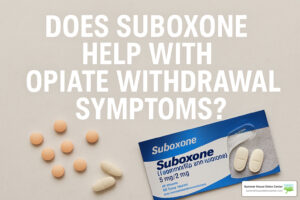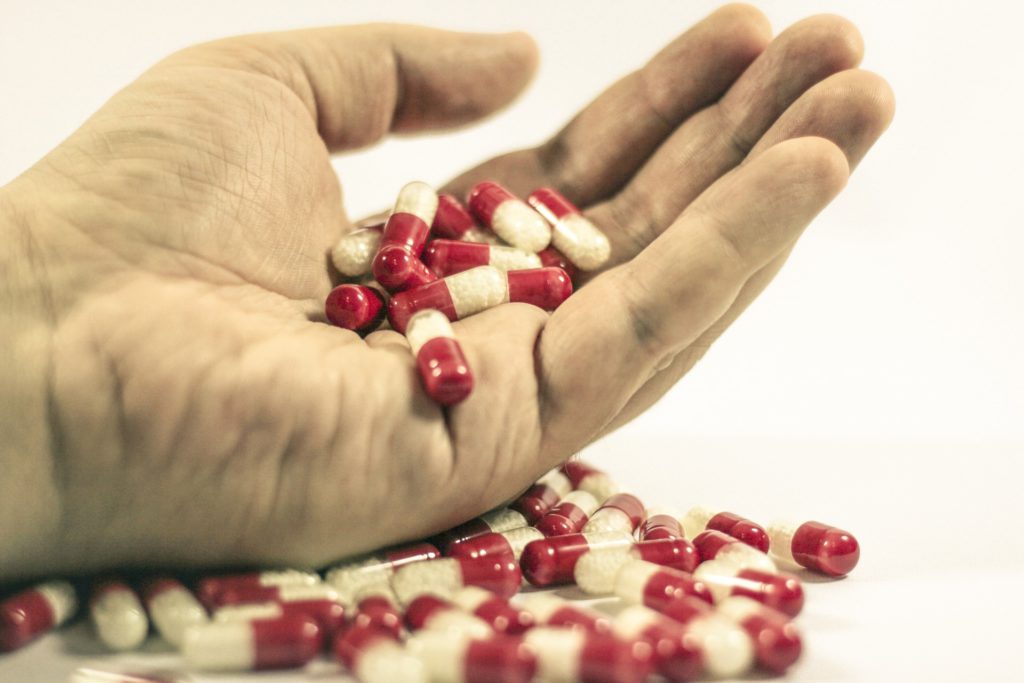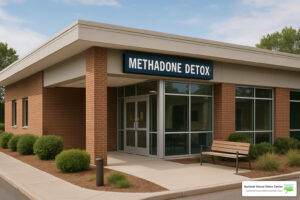
Suboxone and Opiate Withdrawal—Separating Fact from Fiction
Does Suboxone help with opiate withdrawal symptoms? Get facts on how it provides relief & supports a safe detox at Summer House.

May 12, 2020
Polydrug abuse is the abuse of two or more drugs at the same time, such as drinking alcohol while using benzodiazepines. Polydrug abuse can be extremely dangerous due to the way certain substances can interact with one another to increase the risk of poisoning or overdose. An alcohol rehab center can help you or a loved one safely recover from addiction to multiple substances at the same time.
Here’s what you need to know about polydrug abuse and how an alcohol rehab center can help.
Abusing one substance on its own is dangerous enough, but abusing two or more substances simultaneously can accelerate the rate of intoxication and have unpredictable effects on the brain and body.
Every substance interacts with the body in its own unique way. For instance, cocaine is a stimulant that excites the central nervous system to increase one’s heart rate, energy levels, and mental alertness. Alcohol is a central nervous system depressant that slows the heart rate and induces relaxation. Using cocaine and alcohol at the same time can mask symptoms of intoxication for one of these drugs, which can increase the risk of alcohol poisoning or cocaine overdose.
On top of the dangers associated with intoxication, poisoning, and overdose, polydrug abuse can interfere with the way the body breaks down and processes some substances to cause serious problems with major organs. In the case of alcohol and cocaine polydrug abuse, the combination of these two substances causes the body to create a chemical called cocaethylene. This chemical has been linked to an increased risk for lowered immunity, seizures, and liver damage.
Many people who abuse multiple drugs at the same time do so because they’ve developed a tolerance to their primary drug of abuse. Tolerance is defined as needing a higher amount of drugs or alcohol to achieve the same effect because the usual amount no longer produces the desired effect. People who develop tolerance may reach for other substances in an effort to prolong their high or feel greater effects. For example, a person who becomes tolerant to their usual nightly intake of three beers may raid their medicine cabinets for painkillers or sleep aids that can help them achieve the level of euphoria they desire.
People may also abuse multiple drugs to experiment and feel different effects or to heighten the effects of another substance. In some cases, people may combine drugs to offset the effects of another. For instance, the effects of cocaine can last anywhere between a few minutes to one hour, after which users experience a crash characterized by symptoms of discomfort and restlessness. Cocaine users may turn to substances like alcohol or opioids in an effort to relax and counteract the symptoms of a cocaine crash.
Alcohol is a common polydrug combination due to its easy accessibility. Unfortunately, the sedative effects of alcohol make this substance incredibly dangerous when combined with illicit and prescription drugs.
Mixing alcohol and cocaine increases the risk of an overdose, as well as for violent behavior and suicide. People who mix these two substances face a greater risk for heart problems due to the way cocaethylene weakens the heart muscles.
The combination of alcohol and benzodiazepines has been linked to as high as a 55% increase in serious health outcomes, including death. Both of these substances are sedatives and central nervous system depressants that can slow heart rate and one’s breathing to the point of death.
Marijuana use has become more widespread due to its legal status in many states. Using alcohol and marijuana at the same time can lead to greater impairment and a higher risk of related accidents.
Opioids like heroin and painkillers work similarly to benzodiazepines in the way they slow breathing and heart rate. Combining alcohol with any illicit or prescription opioids can increase the risk of an overdose and death.
Methamphetamine and prescription stimulants have similar effects on the heart and body like cocaine when mixed with alcohol. Stimulants will usually mask the effects of alcohol to trick users into thinking they need a higher amount of alcohol. This increases the risk of intoxication and alcohol poisoning.
Anyone who is tolerant of alcohol, dependent on alcohol, and/or addicted to alcohol are at risk for polydrug abuse and its dangerous effects. The same applies to those who abuse other substances and who have access to alcohol. People who use legally prescribed medications to treat anxiety, depression, and chronic pain may also be at risk for polydrug abuse regardless of whether they drink occasionally or regularly. Many who use prescription medications are unaware of the consequences of using alcohol at the same time.
Other populations at risk for polydrug abuse are those who regularly visit clubs and raves where drugs like MDMA, methamphetamine, GHB, ketamine, and Rohypnol are frequently used. Alcohol is usually available at these scenes and combined with GHB and Rohypnol to produce intoxicating and sedative effects. People who are active in the club and rave scenes are found more likely to experiment with polydrug-alcohol combinations.
Those who suffer from addiction to alcohol and at least one other substance can be safely treated in full at an alcohol rehab center. An alcohol rehab center uses detoxification, medications, counseling, and therapy to treat substance use disorders and co-occurring disorders like anxiety, depression, and PTSD. Polydrug abuse treatment regimens are different for each patient based on the substances they’re using, and on factors such as age, gender, the length of time they were using drugs and alcohol, and the severity of dependence and addiction.
All patients receive an assessment and evaluation when they first arrive at alcohol rehab. This allows doctors, counselors, psychologists, and psychiatrists to develop the best personalized treatment plan for each patient. Some patients may benefit most from residential or inpatient treatment programs where they can live at the facility during recovery and receive 24-hour medical care and support. Others may benefit more from partial hospitalization or outpatient programs that offer day treatment so they can live at home and continue going to work or school.
All treatment programs begin with drug and alcohol detox, followed by behavioral therapy and counseling. Detox treats the physical symptoms of drug and alcohol withdrawal, while therapy and counseling treat the psychological symptoms of addiction. The therapies used at alcohol rehab can teach patients how to establish healthier behaviors, thought patterns, and coping methods that help them achieve long-term abstinence.
Drug and alcohol detox programs are customized for each polydrug patient just like treatment programs. Patients are usually monitored very closely and treated for the most severe withdrawal symptoms to reduce pain, discomfort, and related complications. For instance, a patient dependent on alcohol and heroin may be prescribed opioid replacement medications like buprenorphine or methadone to reduce severe cravings for heroin. Or, a person heavily dependent on alcohol who also uses marijuana may be prescribed a low dose of benzodiazepines to prevent alcohol-related seizures.
A detox for polydrug users is usually performed as a medical detox at an inpatient or residential rehab facility. A medical detox normally involves the use of medications and provides patients with 24-hour medical care so staff can intervene at any time to treat and reduce complications.
Summer House Detox Center offers a variety of detox treatments in Fort Lauderdale that can help you or a loved one safely recover from polydrug abuse. Alcohol detox, painkiller detox, heroin detox, and benzodiazepine detox are just some treatments that can be customized specifically for your substance use disorder. Alcohol detox in Florida can provide you or your loved one with the relaxing, comfortable environment needed to experience a lasting recovery from addiction. Contact us today at 800-719-1090 to learn more about our available treatment programs. You can also visit us at 13550 Memorial Highway Miami, FL 33161. We are open 24 hours a day, 7 days a week.

Does Suboxone help with opiate withdrawal symptoms? Get facts on how it provides relief & supports a safe detox at Summer House.

Learn does gabapentin help with opiate withdrawal symptoms, its benefits, risks, and usage tips before starting your detox journey.

Discover how to choose the best methadone detox facility for safe, comfortable withdrawal and lasting recovery. Start your journey today!
For immediate assistance, please call our Admissions Specialists at 800-719-1090.
Speak With A Qualified Addiction Specialist 24/7